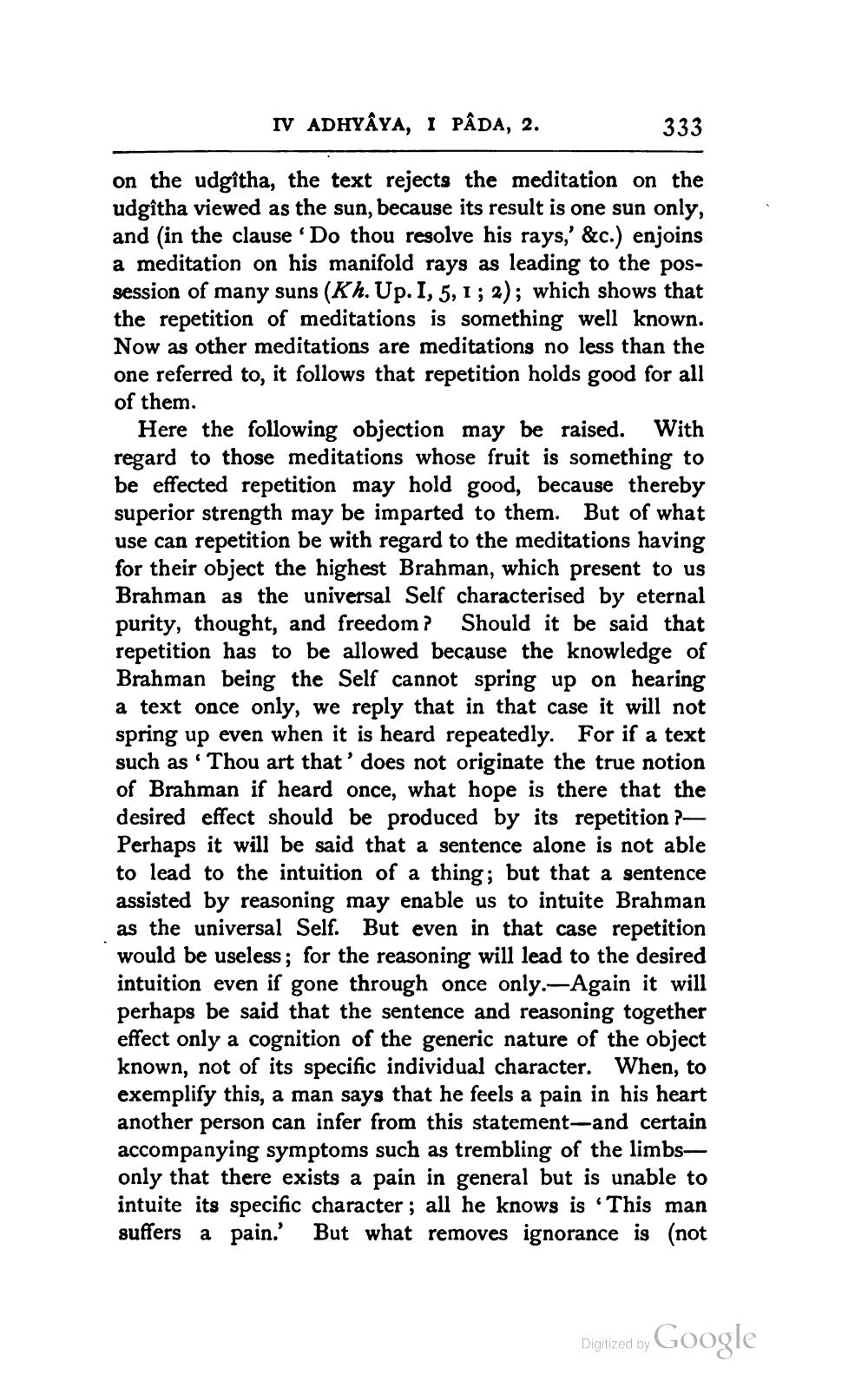________________
IV ADHYAYA, I PÂDA, 2.
333
on the udgîtha, the text rejects the meditation on the udgîtha viewed as the sun, because its result is one sun only, and (in the clause 'Do thou resolve his rays,' &c.) enjoins a meditation on his manifold rays as leading to the possession of many suns (Kh. Up. I, 5, 1; 2); which shows that the repetition of meditations is something well known. Now as other meditations are meditations no less than the one referred to, it follows that repetition holds good for all of them.
Here the following objection may be raised. With regard to those meditations whose fruit is something to be effected repetition may hold good, because thereby superior strength may be imparted to them. But of what use can repetition be with regard to the meditations having for their object the highest Brahman, which present to us Brahman as the universal Self characterised by eternal purity, thought, and freedom? Should it be said that repetition has to be allowed because the knowledge of Brahman being the Self cannot spring up on hearing a text once only, we reply that in that case it will not spring up even when it is heard repeatedly. For if a text such as 'Thou art that' does not originate the true notion of Brahman if heard once, what hope is there that the desired effect should be produced by its repetition ?— Perhaps it will be said that a sentence alone is not able to lead to the intuition of a thing; but that a sentence assisted by reasoning may enable us to intuite Brahman as the universal Self. But even in that case repetition would be useless; for the reasoning will lead to the desired intuition even if gone through once only.-Again it will perhaps be said that the sentence and reasoning together effect only a cognition of the generic nature of the object known, not of its specific individual character. When, to exemplify this, a man says that he feels a pain in his heart another person can infer from this statement-and certain accompanying symptoms such as trembling of the limbsonly that there exists a pain in general but is unable to intuite its specific character; all he knows is 'This man suffers a pain.' But what removes ignorance is (not
Digitized by
Google




